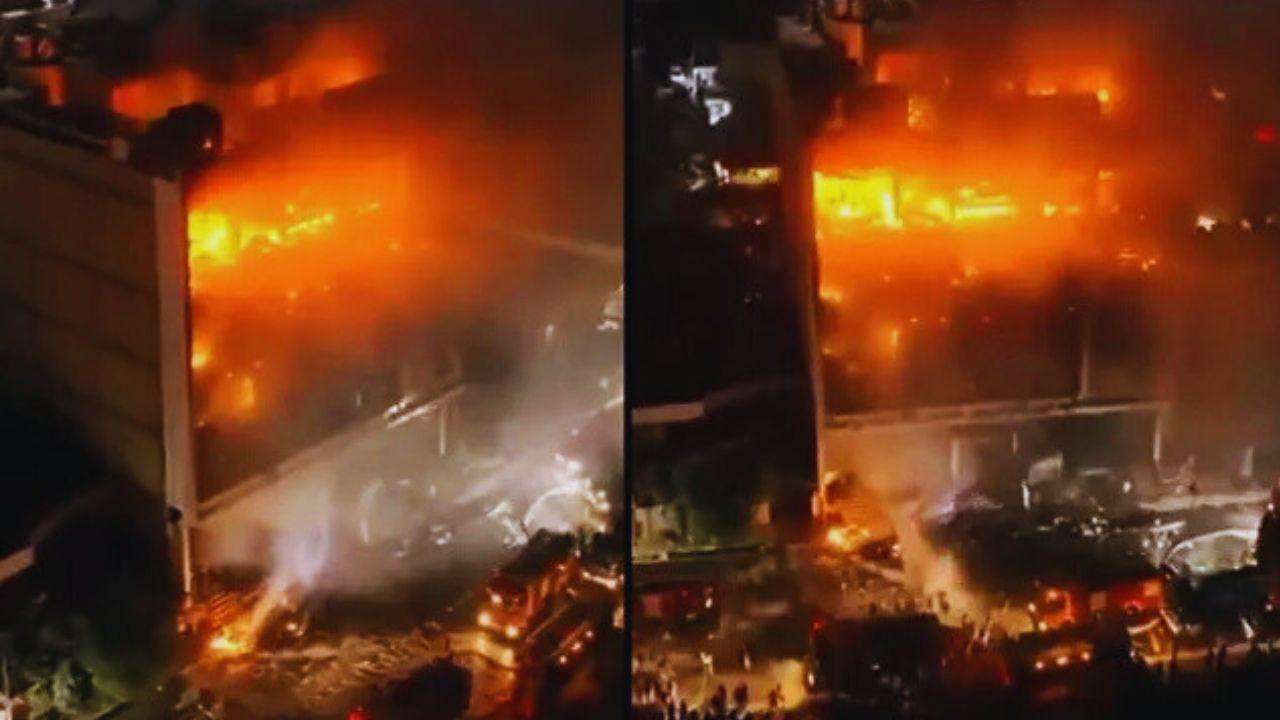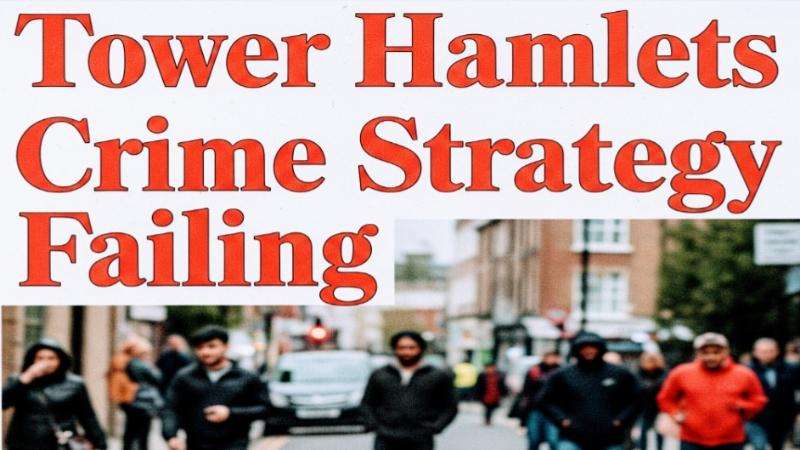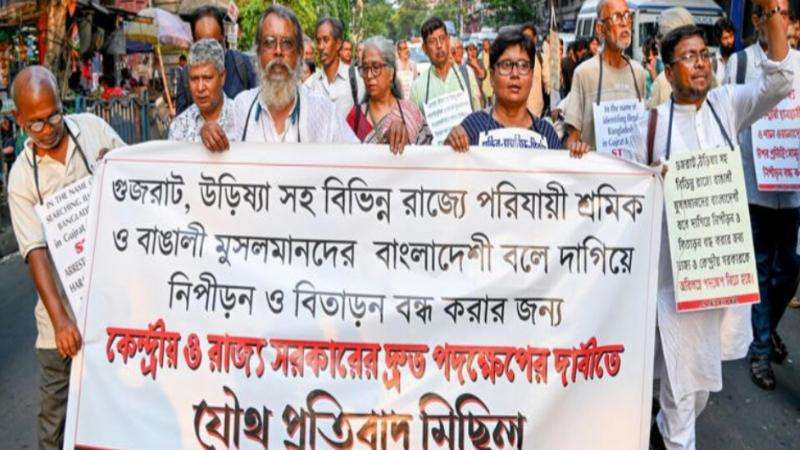West Bengal Chief Minister Mamata Banerjee led a massive protest in Kolkata yesterday, denouncing what she termed the "harassment" of Bengali-speaking citizens in BJP-ruled states. Her strong condemnation comes amidst a growing number of reports detailing intensified scrutiny and alleged discrimination against Bengali migrant workers across India, often based solely on their linguistic identity, Daily Dazzling Dawn understands.
The protests follow weeks of escalating tensions where Bengali speakers, including Indian citizens, have been subjected to repeated Aadhaar card checks and demands for extensive documentation to prove their nationality. Accounts from various states highlight a disturbing trend where speaking Bengali is being conflated with being an "illegal Bangladeshi."
Last week, Assam Chief Minister Himanta Biswa Sarma fueled the controversy by suggesting that the number of people listing Bengali as their mother tongue in the census could help identify "foreigners" from Bangladesh, directly linking the language to the issue of illegal immigration. This statement has significantly amplified fears among Bengali-speaking communities, who feel their linguistic heritage is being weaponized against them.
Incidents of alleged harassment and forced displacement have been reported from multiple states. In Odisha, a significant number of Bengali migrant workers, estimated at around 20,000, purportedly fled after facing "targeted attacks" including robbery, looting, and intimidation aimed at forcing them to vacate their homes and workplaces. Bengal's chief secretary, in a communication to the Odisha government, criticized the "unreasonable and unjustifiable" demands for ancestral land records from detained migrant workers.
Delhi Police have also been conducting extensive inspections in various localities, scrutinizing Aadhaar and ration cards. A visibly frustrated Bengali resident was quoted as saying, "Bangla bolta hain manei Bangladeshi?" (If I speak Bengali, does that make me a Bangladeshi?), encapsulating the widespread anxiety.
Further disturbing accounts include a Muslim migrant worker from Murshidabad, Bengal, who was allegedly told, "You are all Bangladeshi. You are speaking Bengali means you are Bangladeshi," after being sent to a camp in Odisha despite providing his Aadhaar card. Trinamool Congress MP Mahua Moitra highlighted the plight of 421 Bengali workers, including 23 from her constituency, being "illegally detained" in Odisha despite having full documentation. Even Indian citizens, like a ragpicker and his wife from Delhi's Rohini, have reportedly been "pushed" into Bangladesh despite presenting proof of their Indian citizenship.
Most recently, Haryana police reportedly detained 26 Bengali-speaking individuals from Assam in Gurugram on suspicion of being illegal Bangladeshi immigrants. These incidents collectively underscore a troubling conflation of linguistic identity with nationality, raising urgent questions about governance, justice, and humanity in immigration enforcement policies.
The politics of the Bengali language in India is deeply rooted in history. While it was once a symbol of a freedom struggle to reclaim identity in South Asia, today, Bengali speakers across India find themselves grappling with the fear of being forcibly relegated to Bangladesh. This ongoing crackdown, ostensibly aimed at identifying illegal Bangladeshi nationals, has inadvertently cast a wide net, trapping and marginalizing countless Indian citizens whose only "crime" appears to be their mother tongue.








.svg)
